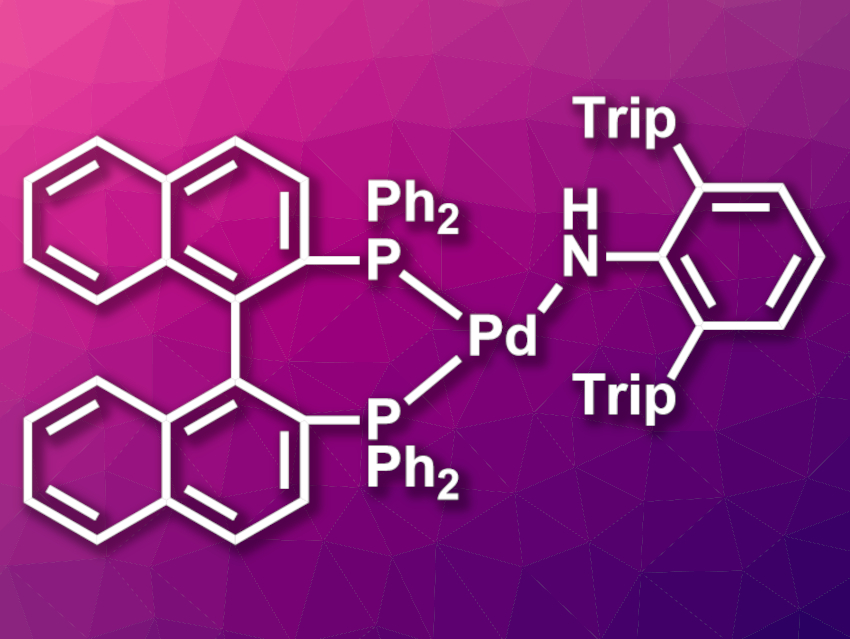Palladium is commonly used in catalysis. Pd(I) species have been proposed as intermediates in some Pd-catalyzed reactions. However, isolable Pd(I) complexes are rare. Pd(I) complexes with π-donor-ligands, in particular, are highly reactive and had remained elusive so far.
Sun Hee Kim, Korea Basic Science Institute (KBSI) and Ewha Womans University, both Seoul, Republic of Korea, Lili Zhao, Nanjing Tech University, China, Kyle M. Lancaster, Cornell University, Ithaca, NY, USA, Liang Deng, Shanghai Institute of Organic Chemistry, University of the Chinese Academy of Sciences, and colleagues have synthesized the first isolable, room-temperature-stable Pd(I) complex with a π-donating ligand, i.e., [(BINAP)Pd(NHArTrip)] (pictured, BINAP = 2,2′-bis(diphenylphosphino)-1,1′-binaphthalene, ArTrip = 2,6-bis(2′,4′,6′-triisopropylphenyl)phenyl). The team synthesized this amido complex via the reaction of (BINAP)PdCl2 and LiNHArTrip.
The product was characterized using X-ray diffraction, electron paramagnetic resonance (EPR) spectroscopy, and multiedge X-ray absorption spectroscopy, and its electronic structure was investigated using density functional theory (DFT) calculations. The researchers found that the complex contains a highly covalent, long Pd–N bond. It can undergo bond cleavage to release an aminyl radical under heat or light.
- An Isolable Mononuclear Palladium(I) Amido Complex,
Jian Liu, Melissa M. Bollmeyer, Yujeong Kim, Dengmengfei Xiao, Samantha N. MacMillan, Qi Chen, Xuebing Leng, Sun Hee Kim, Lili Zhao, Kyle M. Lancaster, Liang Deng,
J. Am. Chem. Soc. 2021.
https://doi.org/10.1021/jacs.1c04965




